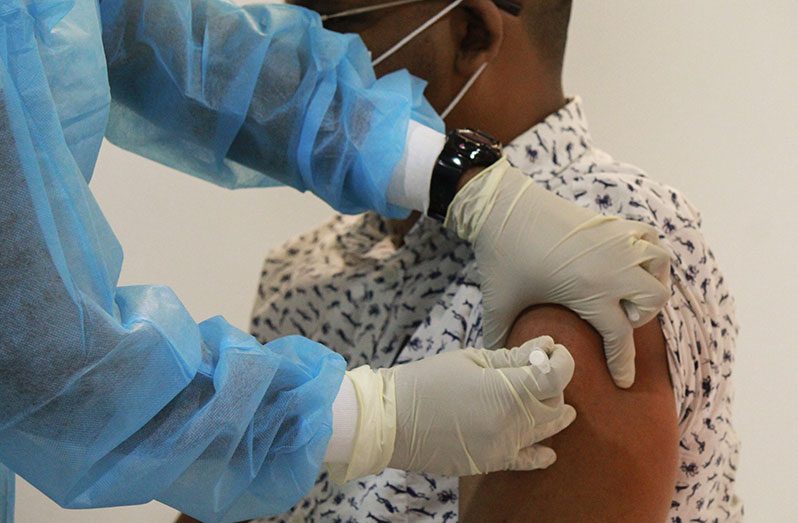GUYANA will be receiving 80,000 Oxford-AstraZeneca COVID-19 vaccines from the Government of India next week, as part of the commitment made by India to donate 500,000 vaccine doses to the Caribbean during its first phase of donations to the region.
On Friday, during his daily COVID-19 update, Minister of Health, Dr. Frank Anthony, announced the donation from India. This, he said, was a “generous” donation from the South-Asian country to the Caribbean.
“We expect those doses to come into Guyana sometime next week,” Dr. Anthony said, explaining that bilateral talks are ongoing to finalise the data and time those vaccines would be received.
This Oxford-AstraZeneca vaccine is being manufactured by the Serum Institute in India, and is called ‘Covishield’ in that country. The 80,000 doses Guyana will receive will allow for 40,000 persons to be immunised, since it is a two-dose vaccine.
It was reported that the vaccine has an efficacy of 62 per cent, while it offers 100 per cent protection against the severe form of COVID-19, hospitalisation and death in a primary analysis of Phase III clinical trials.
However, according to a newer study from the Oxford University that is under review at the Lancet, a single standard dose of the vaccine provided 76 per cent protection (or efficacy) overall against symptomatic COVID-19 in the first 90 days (about three months). Then, vaccine efficacy reached 82.4 per cent after a second dose in those persons with a dosing interval of about 12 weeks.
And, Guyana has already begun rolling out this vaccine to some of its health care workers, working on the frontlines, since it received a donation of 3,000 doses from Barbados two weeks ago. Barbados, in fact, received 100,000 doses of the Oxford-AstraZeneca COVID-19 vaccine from India, and opted to send those 3,000 vaccines to Guyana.
Previously, during a virtual engagement with members of the media, Indian High Commissioner to Guyana Dr K. J. Srinivasa highlighted that 500,000 vaccine doses would be donated by his country to the Caribbean, as part of that country’s vaccine maitri (friendship) initiative.
The acquisition of vaccines has been a challenge for small, developing states like those in the Caribbean. On Thursday, the Caribbean Community (CARICOM), in a statement, said it is ‘dissatisfied’ and ‘deeply’ concerned about the inequitable access to vaccines for Small Developing States, like those of the community.
CARICOM, as such, called for equitable access to vaccines in order to curb the impact of the pandemic, to protect its citizens and bolster the regional economy.
“As the virus does not discriminate, access to vaccines should not be discriminatory, with a few countries dominating the market with their resources and their volumes,” CARICOM said.
On Friday, Dr. Anthony noted that Caribbean countries are part of the COVAX facility, which is a global initiative geared at accelerating the development and manufacture of the COVID-19 vaccines, and then providing them in a guaranteed rapid, fair and equitable manner to those countries which need them.
However, Dr. Anthony noted, “With COVAX, we haven’t really seen that rapid deployment of vaccines. We’re hoping that maybe sometime next week, we’d see vaccines coming to the region and shortly after that we’ll get adequate doses as proposed through the mechanism.”




.png)









